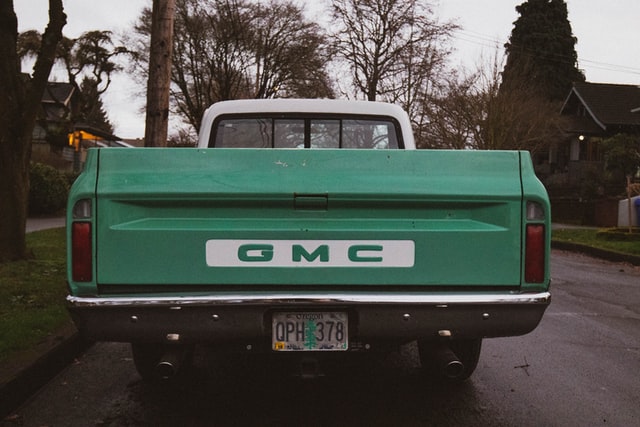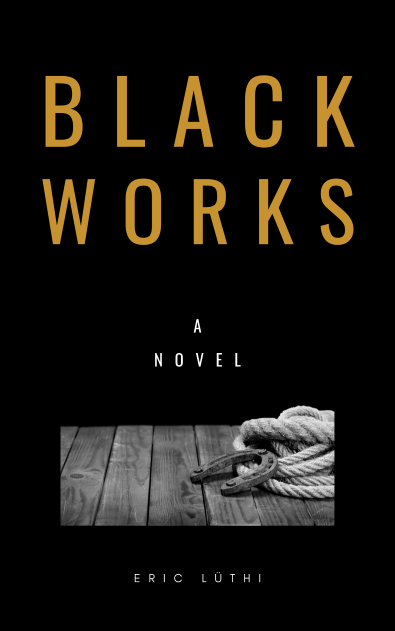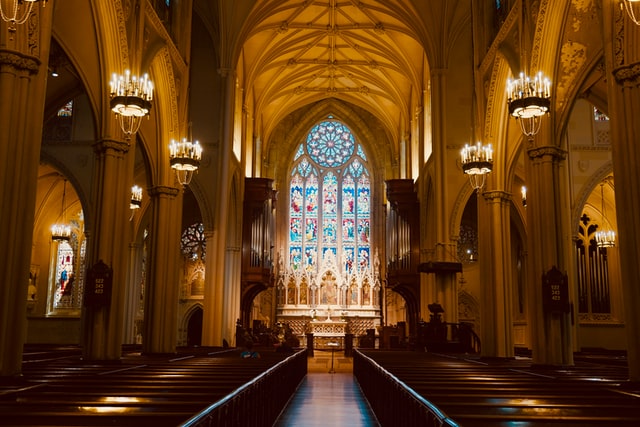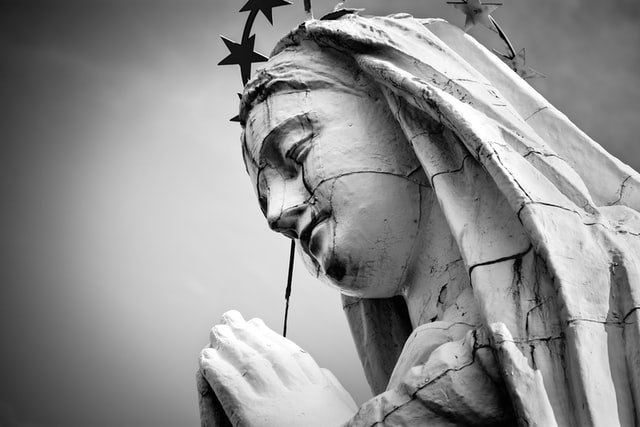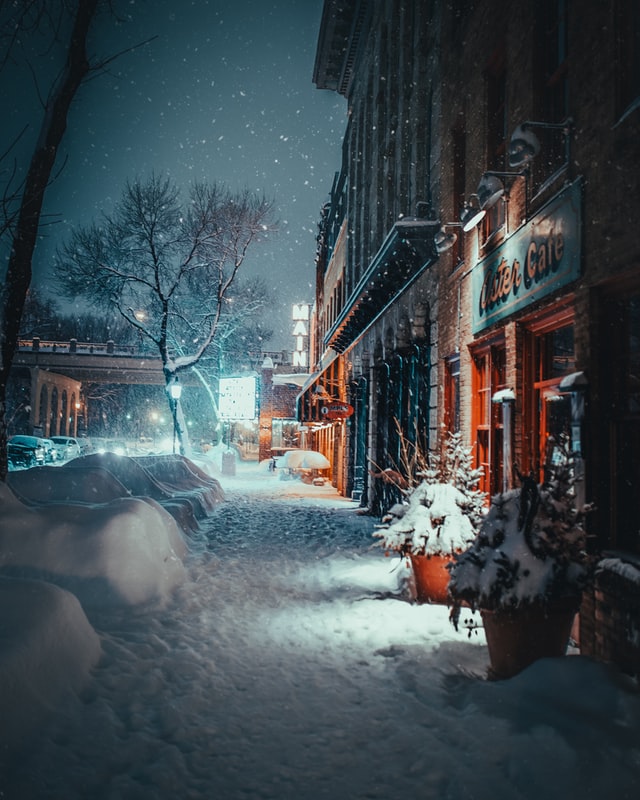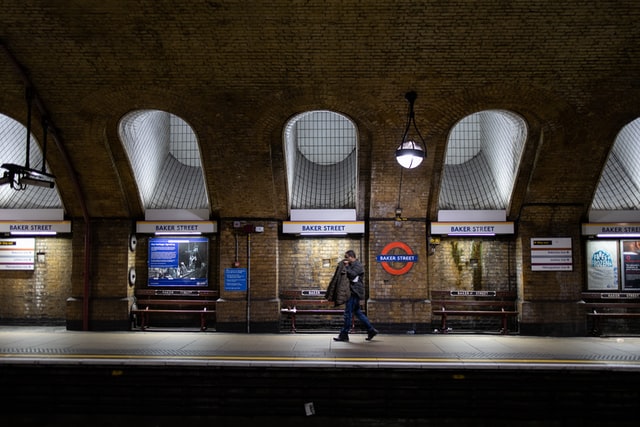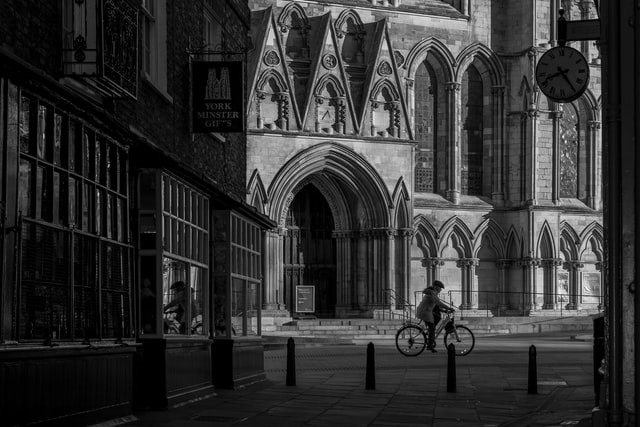by Bryan Grafton
“How much farther Grandpa?”
“It should be up ahead just a little ways. Not too much farther.”
He wondered if his grandfather could remember. If they were even on the right road at all. After all his grandfather was eighty eight and getting forgetful at times.
He had the job now of looking after his grandfather since his father had passed away last month. He had driven all the way down here from Hoffman Estates to this god forsaken rural community in west central Illinois that mockingly called itself Forgottonia, nothing but dried up little towns and field after field of corn and beans. He had gotten his grandfather from the Happy Endings Nursing home, and now was taking him out, per his request, for a nostalgic trip down memory lane, a ride in the country to see the old family farm where he had grown up. He had never been there so he was relying on his grandfather to show him the way.
They had driven for quite some distance in silence when his grandfather suddenly spoke up and said, “Stop. Stop here please.”
He brought the car to a stop in the middle of nowhere on a dusty gravel road.
“Grandpa there’s nothing but that old abandoned building over there. That can’t be where you grew up. That doesn’t even look like a farm to me.”
“It’s not. That’s where I went to school.”
“In that little dilapidated old falling down building? You’re kidding me.”
“Graduated eighth grade there.”
He knew his grandfather had never graduated high school. There was no need to then if one was going to be a farmer and his grandfather had been one all his life. When he got too old to farm his father had tried to get him to come live with him in Barrington. But Grandpa refused. Consequently his father trekked down here to ‘Forgottonia’ once a month to visit him and now that responsibility fell on him.
“Do you want to get out and go take a look, Grandpa.” He asked more out of politeness than practicality for he knew his grandfather would say no since he was semi mobile and they hadn’t brought his wheelchair.
“No that’s okay.”
“Well tell me about it then Grandpa.” He knew his grandfather was dying to tell him. After all that was the whole purpose of this trip to begin with, to harken back.
“Okay, I will,” he said a smile upon his face. “See how the school is oblong shaped. See the windows there only being on the east side, the whole east side. There’s no windows on the west. That’s to avoid the afternoon sun making the place too hot. Morning sun on the east side wasn’t so intense and let in enough light so we could do our lessons.”
“Well that makes sense,” he commented, beginning to take an interest in this now. “How many kids went there Grandpa?”
“Forty give or take a few. First through eighth grades.”
“What’s that metal thing sticking up out of the ground there?” he asked pointing to it.
“Oh that’s the pump. That’s where we got our water. Drank it straight out of the ground. Had a long wooden trough in front of it to prevent a mud puddle from forming under the spout.”
“You mean you didn’t have running water inside back then?”
“Yep. That’s exactly what I mean. Didn’t have flush toilets either. Just kind of had outhouses inside the schoolhouse.”
“You’re putting me on Grandpa.”
“No I’m not. When you came in the front door you entered the cloak room where we hung our coats and left our muddy boots but off to the right was the boys room and off to the left the girls. No flush toilet. No wash sink either. Just had a stool over a hole in the ground. Teacher used to dump chemicals down it every so often as to keep the stink down.”
“Suppose you didn’t have electricity back then either huh Grandpa.”
“Yep. Didn’t have central heat back then either. Had a wood burning stove. The back room of the school was the woodshed. Kind of got a little cold in the winter at times. Had to keep your coat on all day.”
His curiosity was definitely aroused now. He wanted to see for himself so he said, “Mind if I get out and go take a look around and in the window Grandpa.”
“Don’t believe me do ya?”
“I do. I just want to see that’s all.”
“Okay go ahead then.”
He got out of the car and entered the school yard.
“There used to be a couple of swing sets and a slide over there,” his grandfather hollered, pointing to the east side of the school.
“Where there’s none here now,” he hollered back.
“You’ll see the old footings where they used to be. Take a look.”
He went to the old well first and tried the pump handle. It was frozen in time and didn’t move. The ten foot long or so wooden trough was there just like his grandfather said, rotting away. It was hard for him to believe they drank unfiltered water straight from the ground. No government regulations back then evidently.
He saw the concrete footings that once had anchored the swings and slide in place. Someone must have stolen them for scrap metal he thought.
He went up to the window and pressed his nose against it. There was nothing in there. Whatever had been there was long gone. Probably someone had stolen all the old desks too he thought and sold them as antiques. He could see a hole in the wall where the smoke stack used to be. To the front he could see the open door that led to the cloak room but he couldn’t see the doors to the inside outhouses. He wanted to see them.
He went around to the back of the building first though to the door to the back room. It was falling off its hinges and as he swung it open it fell completely off. There in the back were some old broken damaged desks that evidently no one thought worth stealing. The kind that had an inkwell in them, no ball point pens back then. The kind where one was attached to the one in front of it so that the boy behind the girl could stick her pigtails in his inkwell. There was also a pile of cut wood. He could tell varmints had been living in it; their dried droppings were everywhere. He went around to the front door, tried it, it didn’t budge. Oh well forget it. He’d seen enough. He better get going and take Grandpa to his old farm house.
“Well it was just like you said Grandpa,” he informed him as he got in the car and started off down the road to yesteryear.
“It was called Kingdom School,” his grandfather announced.
“Kingdom? Why that Grandpa?” He knew his grandfather was having a good time and so was he now.
“The original man that owned the land here back in the 1830’s was a some kind of disposed or deposed royalty from England. So he came to this country to establish his own little kingdom right here in Illinois. Story is he actually called his farm his ‘Kingdom.’ Back in those days there were no public school systems but everyone wanted a school and since he owned most of the land in the center of the township he agreed to give up that little tract there for a schoolhouse since it was centrally located. It pained him though to part with part of his ‘Kingdom.’ So he put a clause in the deed that if the ground wasn’t used as school, it would revert back to him, or his heirs, if he was dead. The locals jokingly named the school Kingdom since it was located in his ‘Kingdom’. The school was closed back in the fifties when they started busing the kids to school in town here. Anyway the school was supposed to go back to this supposed land baron. Course he had been dead some seventy years by then and nobody knew who his heirs were. That’s why the school’s just sat there and fallen apart. Nobody’s ever come forth claiming to be an heir.”
They rode in silence for a while.
“How much further Grandpa?’
“Not much. I used to walk to school every day. There was no bus service back then you know.”
He drove on a ways then, “Slow down, it’s just up ahead.”
“I don’t see anything Grandpa. You sure?”
“Slow down. Stop right here at the intersection.’
He did as ordered. Again they were all alone out there in the middle of nowhere by themselves.
“There’s just a cornfield here Grandpa.”
“Well it was here. Right on the southeast corner here. That big corporate farm I sold out to must have torn everything down. Aren’t many family farms left anymore.”
The grandfather wiped his eyes, took in and blew out a deep breath, straightened himself upright. “Well we might as well go back now.”
They got back to the nursing home. He helped his grandfather inside.
“Grandpa, I had a good time today but I better get going now. I got a long drive ahead of me. I’ll try to get back sooner next time.”
“Your father came once a month you know.”
“Yah I know but he never took you out to see the old place did he?”
“No he thought it would be too hard on me. Thank you. I really do appreciate you doing that for me.”
”Oh you’re more than welcome Grandpa.”
“You know next time I think I’ll have you wheel me up to the window there and help me stand up so I can take a look inside. Okay?”
“Okay Grandpa we’ll do that,” He went up to his grandfather and gave him a big hug, fighting back the tears welling up inside him.
The next time came one month to the day. They went to the school again and his grandfather got his look inside. He died the next day.
He cremated his grandfather per his prearranged instructions and buried his ashes next to those of his grandmother in the little burg there. Didn’t bury all of them though. No he held some back and scattered them at Kingdom School. Did that just by himself as he said goodbye to his Grandfather.
Bryan Grafton is a retired attorney.

